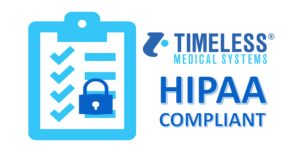
Hospitals are increasingly recognizing the value of using dedicated staff within a centralized location for human milk (HM) and formula preparation to reduce risk of contamination and preparation errors. The key is getting the right staff in place to perform this important function.
Why use dedicated staff?
- Use of dedicated staff allows them to focus solely on feeding preparation without other distractions and patient care duties.
- Published data supports that the use of dedicated technicians for feeding preparation improves patient safety by reducing frequency of errors.1,2,3
- In a six-year analysis of a 114-bed neonatal intensive care unit (NICU), wrong HM, expired HM, and wrong fortifier scans when their bedside nurses were preparing feedings were compared to wrong scans when dedicated technicians were preparing feedings. Researchers found that incorrect scans per 1,000 bottles decreased from 97 to 14 when dedicated technicians were utilized.1
- A review within a level IV NICU found that wrong HM scans decreased by 88% when feeding preparation responsibilities were moved from the bedside nurse to dedicated technicians.2 In addition, expired HM scans and wrong fortifier scans per 1,000 feeding preparations decreased from 40.9 to 5.3.2
- A seven-year review in a 104 bed level IV NICU found that 75% of wrong HM scans occurred at the bedside.3
- Use of technicians for feeding preparation provides the bedside nurse additional time to focus on direct patient care duties including assisting parents with skin-to-skin and direct breastfeeding. It also allows registered nurses to work at the top of their scope.

Education and skills
Many hospitals are unsure of where to start to find appropriate candidates. The goal of an infant feeding preparation operation is to provide safe and accurately prepared human milk and formula feedings to the right patient at the right time. While there is not a uniform job description or educational requirement for an infant feeding preparation technician at this time, to accomplish this goal the candidate should have a skill set that includes:4
- Knowledge of infection control measures and aseptic technique
- Understanding of proper handling of HM and formulas
- Critical thinking skills
- Basic math skills
- Attention to detail
- Good written and verbal communication
- Strong time management skills
- Pharmacy technician
- Medical technologist
- Certified nursing assistant (CNA)
- Licensed practical nurse (LPN) or licensed vocational nurse (LVN)
- Certified dietary manager (CDM)

Selecting non-technical staff from within an organization can still have benefits. Internal candidates have a knowledge of the organization and may have some familiarity with some of the hospital computer systems. Some examples of internal candidates could include:
- Food service employees: Knowledge of aseptic technique and proper food handling.
- Supply chain employees: Knowledge of products, ordering, and hospital units.
- Sterile processing employees: Knowledge of aseptic technique.
- Unit support or nursing assistants: Knowledge of aseptic technique, hospital units, and hospital computer systems.
Timeless Medical Systems now offers preparation room consulting services covering many aspects including equipment and layout design, FTE calculations, training and certifications for prep room technicians, and even creating daily workflows to optimize efficiencies. Our very experienced and skilled Clinical Team Members have 1st hand experience in creating and implementing centralized preparation rooms and processes in some of the largest most prestigious hospitals throughout North America. If you are interested in learning more about these consulting services, please contact sales@timelessmedical.com.
References:
- Oza-Frank R, et al. A Quality Improvement Project to Decrease Human Milk Errors in the NICU. Pediatrics. 2017;139(2). DOI: 10.1542/peds.2015-4451.
- Alessi S, Rengifo J, Steele C, Kaur G, Desai P. Improving Comprehensive Enteral Feeding Handling Processes in a Level 4 NICU: A Quality Improvement Project. Pediatric Academic Societies Abstract April 2023.
- Steele C, Bixby C. Bar Code Scanning of Human Milk and Enteral Formulas Improves Efficiency and Patient Safety: A 7-Year Review Nutrition in Clinical Practice. 2021;1-8. https://doi.org/10.1002/ncp.10765
- Steele C, Collins E, eds. Infant and Pediatric Feedings: Guidelines for Preparation of Human Milk and Formula in Health Care Facilities. 3rd ed. Chicago, IL: Academy of Nutrition and Dietetics; 2018.
- Ohio State University. Infant Feeding Technician Certificate Course. https://foodindustries.osu.edu/infant
- Columbus State Community College. Formula / Human Milk Technician Certificate Program https://www.cscc.edu/for-business/formula-tech.shtml





